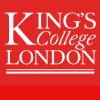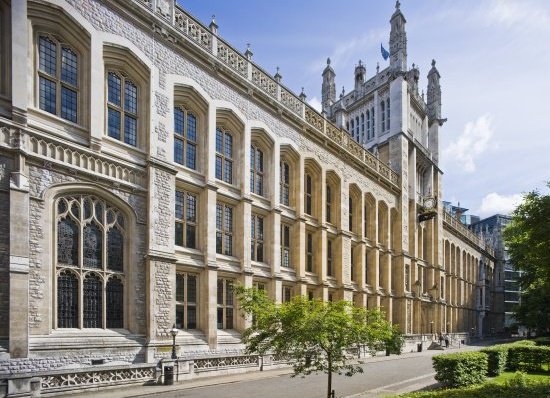Strand, London WC2R 2LS, United Kingdom
Career Counselling

King’s College is a renowned public university located in London. Its research achievements and focus on sustainability have ensured that its 185,000 alumni have significantly contributed towards making the world a better place.
All academic activity at KCL is organised into nine Faculties: from Arts & Humanities to Law, Business, and Life Sciences & Medicine, they work towards the Strategic Vision through more than 50 Departments and Schools.
The College was formally established in 1829, but academic activity asso...
| Establishment year | 1829 |
| Total Students | 29,637 |
| International Students | 10,999 |
| QS World University Rankings 2024 | 40 |
| Campus Size | N/A |
| Total Number of Campuses | 5 |
| University Website | https://www.kcl.ac.uk/ |
| No. of Schools and Divisions | 9 Faculties, with Schools and Departments within |
| Nobel Prize Winner Alumni | 14 |
| No. of Education Programs | 180+ (Undergraduate), 238 (Postgraduate) |
| Student to Faculty ratio | 6:1 |
All UG, PG, and Ph.D. courses at King’s College London are provided by 9 Faculties, within which there are Departments and Schools. Here are some more details:
KCL is slightly easier to get an admission offer from than other elite universities in the UK: in 2021-22, 55% of Undergraduate applicants, and 41% of Postgraduate applicants, received an offer of admission.
Undergraduate applicants are required to display a high level of excellence in their A-Levels or equivalent (most courses require a performance equivalent to distinction or above in the best three A-Level subjects). In addition, every course has its own requirements, e.g. certain required subjects for some departmental admissions, and Aptitude Tests in law, dentistry, and medicine. All applicants also have to demonstrate their proficiency in the English language; this is usually done through a submitted certification.
Eligibility criteria for PG taught courses vary, and the requirements can be found for the programme of interest on the relevant course webpage. The same English proficiency requirements apply as for UG courses, and applicants for courses in some Science and Engineering disciplines from overseas may be subject to additional background checks, as an additional measure of security.
The Undergraduate application process is online, facilitated by the Universities and Colleges Admissions Service (UCAS) website. This site allows candidates to search for courses, apply for admission, and track the status of their application. The standard deadlines apply: 15 October for medical/ dental courses, and 26 January for other courses.
Three kinds of programmes at KCL have a different application process than that outlined above: applicants who wish to transfer to the College from another University must still apply through the UCAS website, but they will have to submit additional materials in support of their application. Students who wish to apply for the King’s International Foundation Programme, through which they can spend a year studying required subjects and English in preparation for a guaranteed admission into a King’s College UG course, can find more details on the relevant KCL webpage. Finally, students who are enrolled in a full-time UG degree in a different country can spend a semester at King’s through the Study Abroad programme.
Applying to Postgraduate programmes at KCL starts with a detailed course search and a scan of the entry requirements. Post this, most candidates do research on the tuition fees for their courses of interest, and the options to fund their study in that discipline. The submission step involves three main deliverables: academic transcripts of undergraduate study, two academic or professional reference letters, and English language proficiency certifications. The application process - including the submission of relevant materials, fee payment, and tracking of a submitted application - is all done through the College website.
Given KCL’s research excellence and reputation, its tuition fees are in line with those of the top universities in the UK. Undergraduates from the UK pay a flat tuition fee of £9,250 per year, while international undergraduates pay a variable fee of above £15,000 depending on the course and year (there may be an increase year-on-year during the programme).
Postgraduate fees vary widely by course, and details for each course can be found on its webpage. The fees for PG courses are typically above those for UG courses in the same department, but additional funding options are also available in terms of research assistantships. Students from the EU currently pay the international fee, post Brexit.
Over and above tuition fees, prospective international students of King’s College will need to budget for living costs, food, and travel. This varies based on the type of housing and lifestyle, but a useful rule of thumb is to use the minimum recommended budget per month of £1,265, that the UK Visa and Immigration department checks. For a typical 9 month stay on campus per year, this amounts to £11,385 annually.

King’s College has five main campuses. The founding Strand Campus is located in Westminster along the River Thames. The most prominent Faculties of KCL (Science, Law, Arts & Humanities) are located here. The Waterloo Campus contains the School of Biomedical Sciences, and has the largest academic building in the city. St. Thomas’ Campus is near Strand, and contains parts of the School of Medicine. Guy’s Campus houses the Faculty of Life Sciences & Medicine. The Denmark Hill campus, in South London, is home to the King’s College Hospital.
The life of a student at KCL is inextricably linked with its location within one of the most vibrant cities in the world: the location of the five campuses across London ensures exposure to the historic yet modern heart of London, and to the cosmopolitan culture that can be found both inside and outside the College.
The BeActive movement at KCL encourages all members of the King’s College community to participate in social exercise and sports activities. This helps with physical fitness as well as therapy for mental health. An innovative strategy adopted to ensure regular physical activity is syncing smart wristbands with a central database; a jog or a long walk can earn points and translate to on-campus rewards.

King’s Sport, the hub for formal sporting activities at KCL, manages two gyms, and operates two large sports grounds in different areas of London. Within these grounds are multiple pitches that are used to play football, cricket, rugby, hockey, and so on. King’s College teams participate in the University of London sports leagues, and multiple alumni have won individual medals at the Olympic Games, with Dame Katherine Grainger having won 5 medals, including one gold.
KCL maintains a CareerConnect online portal for its UG and PG students to discover, learn about, and apply for internships and jobs. The placement and further research prospects are bright, as can be expected from a University with the reputation that King’s College has; the highest starting salaries are usually seen for graduates of the Business School and the Faculty of Medicine.
Though the tuition fees and living costs within London are steep, there are multiple scholarships and funding options available to both UG and PG students.
Undergraduate scholarships at KCL can be found via the funding opportunity search function on the KCL website (which contains PG scholarship details as well). Most of these cover a portion of the tuition fees for eligible students. For example, the Perseverance Trust Scholarship is worth £7,500 per year.
Postgraduate scholarship and funding options depend on the course and Department; each webpage has relevant details of application deadlines for these. For example, in the Business School, each PG student can apply for a tuition fee scholarship waiver of £10,000. This is submitted separately after receiving an offer, and the application consists of an essay and a video.
